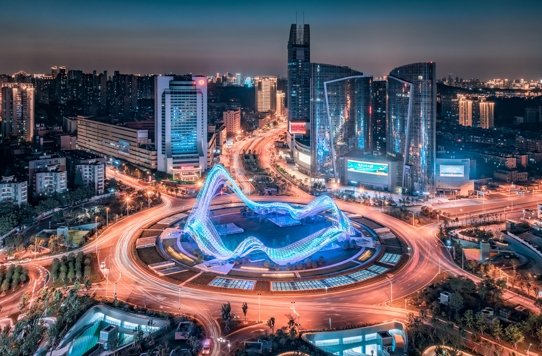As top producers of flexible LED screens, we are dedicated to reducing the negative effects of our manufacturing procedures on the environment. Our commitment to innovation goes beyond producing top-notch Retop LED screens; it also includes our duty to make a constructive environmental impact. This post will examine how we deliver outstanding products while putting sustainability first in our production processes.

Sustainable Materials: A Core Principle
One of the key ways we ensure that our Retop LED display products are environmentally friendly is by sourcing sustainable materials. We meticulously select components that not only meet industry standards but also have a reduced ecological footprint. By using recyclable and eco-friendly materials in our flexible LED screens, we reduce waste and promote a circular economy. This commitment to sustainability reflects our goal of producing high-quality displays while protecting the planet for future generations.
Energy-Efficient Manufacturing Processes
As flexible LED screen manufacturers, we recognize that energy consumption during production can significantly impact the environment. That’s why we have invested in energy-efficient manufacturing processes. Our state-of-the-art facilities utilize advanced technologies that minimize energy usage without compromising quality. By optimizing our production lines and employing renewable energy sources, we can significantly reduce our carbon footprint. We believe that adopting energy-efficient practices not only benefits the environment but also enhances our operational efficiency, allowing us to deliver superior Retop LED displays to our customers.
Lifespan and Recycling of Retop LED Displays
Another important aspect of our environmental commitment is the longevity and recyclability of our Retop LED display products. We design our flexible LED screens with durability in mind, ensuring they can withstand various environmental conditions without losing performance quality. A longer lifespan means less frequent replacements, ultimately contributing to lower waste levels. Additionally, we provide guidelines and support for recycling our products at the end of their life cycle. By encouraging responsible disposal and recycling, we help reduce electronic waste and promote sustainable practices within the industry.
Conclusion
We at Retop take the environmental impact of our Retop LED display production very seriously. As producers of flexible LED screens, we are committed to integrating sustainable practices into every aspect of our business. We work to improve the environment by encouraging recycling programs, implementing energy-efficient production techniques, and procuring environmentally friendly products. By adopting Retop LED displays, customers not only benefit from better technology but also contribute to a more sustainable future. One creative screen at a time, we can all work together to change the world.
I consent to receive emails about news, marketing&product updates from Retop in accordance with the Retop Privacy Policy